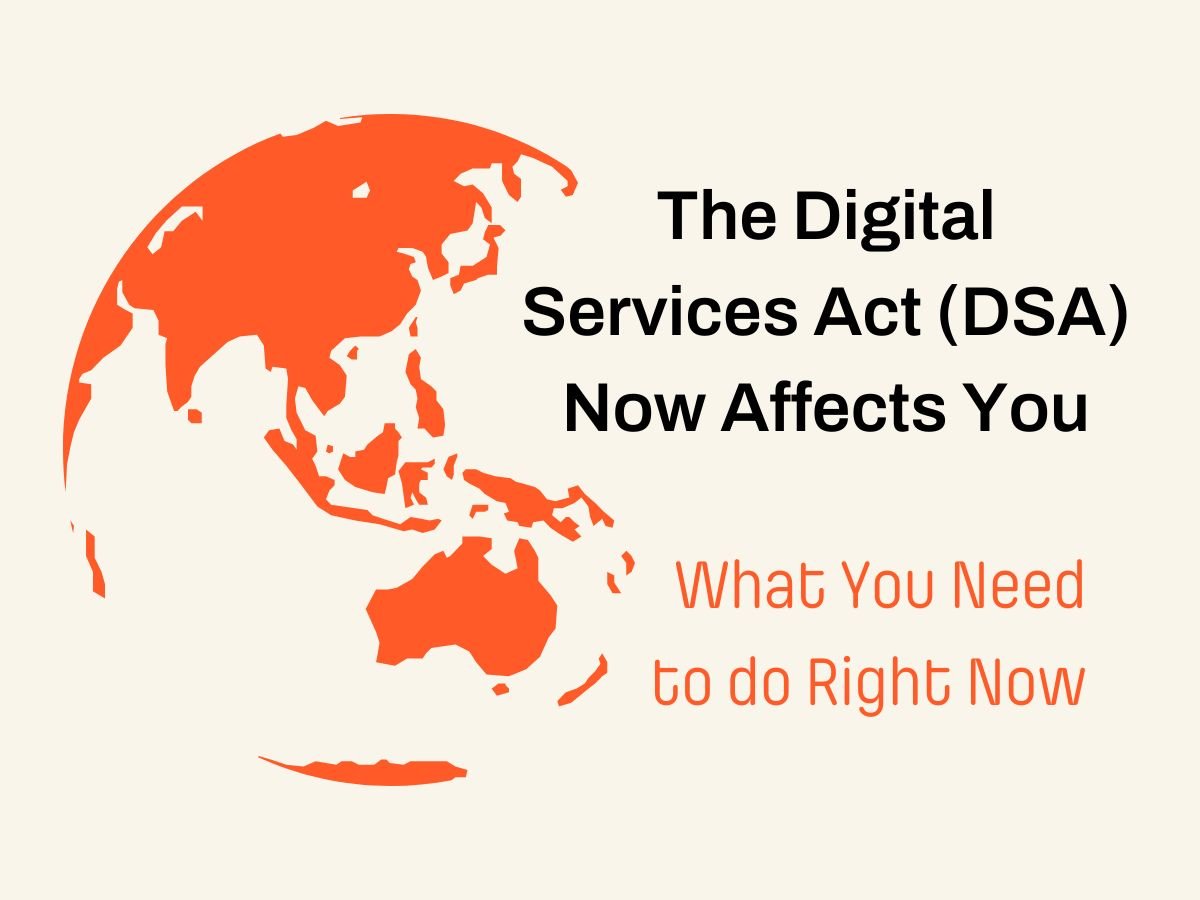The European Union’s Digital Service Act (DSA) is a new piece of data regulation with new rules around content moderation and online advertising. Not in the EU? It doesn’t matter. The DSA will more than likely still affect you. The Digital Services Act has now expanded to include every online platform with users in the EU.
If you have anyone visiting your website from the European Economic Area this includes you.
To put it bluntly, this now affects almost all websites.
Before we begin, do you want to dig further into the DSA, data privacy and cookies? Download our free whitepaper on Cookies & Data Privacy for Marketers.
How am I affected by the DSA?
Our clients are already seeing notifications about the change in Google Analytics.
Google is strengthening its enforcement of the EU user consent policy which will affect Google advertisers and GA4 users.
What’s affected?
- Advertisers using ad personalisation
- Website tags that send data to Google
- App SDKs that send data to Google
- Plus any tools uploading data from non-Google sources (including offline conversion imports or store sales)
To keep using measurement, ad personalisation and remarketing features, you’ll need to now collect consent for the use of personal data from end users based in the EEA and share consent signals with Google.
What to do right now
Already using consent mode?
If you already use consent mode and don’t use personalised advertising (including remarketing), you won’t need to take any action just yet. However, if you do want to engage in personalised ads work with your Google-certified consent management platform to ensure you’re using the latest update, and if you maintain your own consent banner, implement consent mode v2.
Not already using consent mode?
If you have a consent banner implemented but don’t use consent mode, you’ll need to implement consent mode in the Google tag or in Google Tag Manager to use the full range of Google’s ad capabilities, including personalisation and remarketing.
Google Tag Manager greatly helps and eases the implementation of cookie consent. We can control the tags that will or not be triggered based on user consent. This ultimately includes Google tags (which can support consent mode) but you can also set the conditions on other tags (Meta, Linkedin, etc.) to ensure you are not collecting any data unless you have consent.
If you use a Google-certified consent management platform, enable consent mode in your banner settings. If you prevent your Google tags from loading until a user interacts with your consent banner, Google won’t be able to verify user consent choices which could mean Google can’t accurately predict traffic and conversions.
Don’t have a banner or consent mode in place?
Talk to us about data governance and setting up a consent banner and consent mode in Google in order to use Google’s full range of advertising capabilities and measurement in GA4.
While many companies in APAC are behind in terms of data governance, the changes to the DSA and other regulatory changes around data privacy show that we can no longer get by doing nothing. Marketing tools like Google Ads, Analytics and others are now impacting your ability to market and measure your data.












